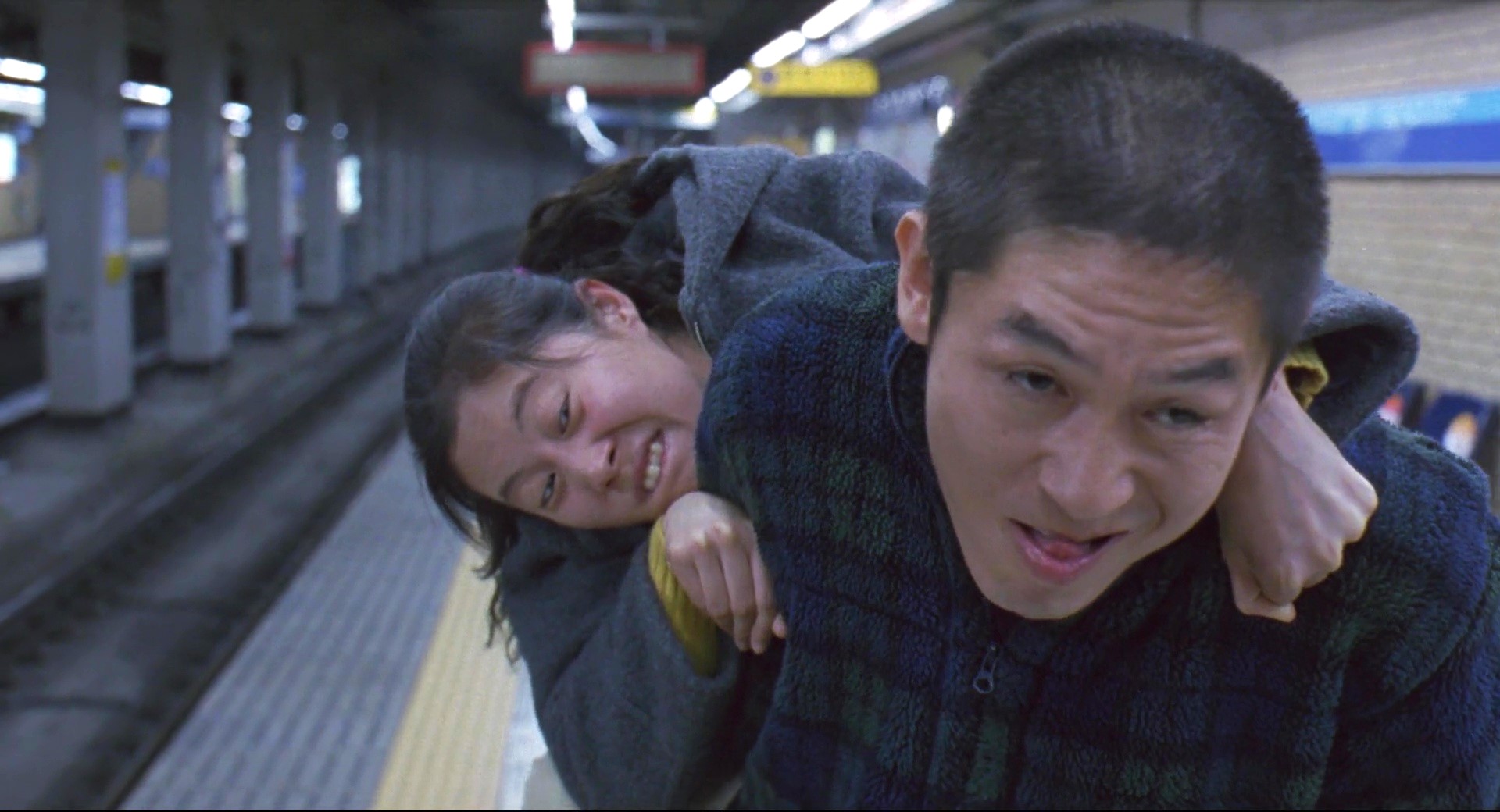One of the most unlikely romances in Korean cinema, as seen through the lens of director Lee Chang-dong

Unconditional love is rare in life, but two castaways experiencing it through each other are rarer still. Moon So-ri and Sol Kyung-gu play Han Gong-ju and Hong Jong-du in 'Oasis.' Photo courtesy of IMDb.
Oasis’s (2002) avant-garde take on love amid despair through the lens of Lee Chang-dong stirs the senses. Starring South Korean acting elites Moon So-ri and Sol Kyung-gu, it’s a crushing tale of apathy, anguish, estrangement, and—essentially—staggering emotions. Lee triggers, in an honest assessment, disquieting concerns about human conduct toward those we call social misfits. Who are they, is the question: Victims of conditions? Or our flawed perspectives, which tend to victimize them.
In summary, Oasis follows Hong Jong-du (Sol), a man with mild cognitive impairments who has served time for a hit-and-run fatality and has been freed from incarceration. The casualty’s daughter, Han Gong-ju (Moon), negligently set in a run-down dwelling, is visited by Hong, now homeless and impoverished yet attempting atonement. Han draws Hong in, given her inherent sensibility and the two initiate an unorthodox intimacy.
This isn’t an obvious love story. This is an occasion the culture is uneasy about, one it can’t comprehend, and perhaps so codifies the love as non-viable—thus, for them, the divide between what is appropriate and not stays unclear. A whirlwind romance results from an initial infatuation and intensifies upon a possible subsequent flaw on Hong’s part. From their angle, though, this “romance” is proximity (which they had always sought) that is resented when revealed, and love in its purest form is deemed perverse.
Unconditional love is rare in life, but two castaways experiencing it through each other are rarer still. Hong and Han’s encounter was fated, but they still had to contend with societal cruelty and callousness. With his probing of that; the warped psyche of humanity, director Lee makes a significant statement in Oasis. His portrayal of Hong is superb: a reckless nutcase who rejects social conventions and repeatedly ends up in jail, yet seeks redemption; he loves and indulges in more mistakes, but returns to make up; he tries all in his reach to validate his love. Oasis finds its soul through Han, besides. Her intrinsic qualities strike me as being what makes her most lovely. Her ache is discernible; she is resilient nevertheless willing to dream and desire to live, to love and be loved, and to feel what she pines for.
Moon and Sol’s partnership is a power play, creating the most unlikely romance in Korean cinema. Moon stuns, sculpting out the most authentic Han; she is spot-on, and Sol’s act lends the greatest credence to her role. They thrive on producing the most intense feelings from one of the most challenging love stories. Dehumanizing the disabled while exploiting them for personal gain is a stark manifestation of an attitude that throws you under the bus, as is seen in many cultures. Within Oasis, director Lee references them through his protagonists.
Oasis prevails with its ingenuity and the profundity of its title. The verdant oasis of love and happiness, a refuge in the desolate deserts of their individual lives, was uncovered by Hong and Han when they found each other.
The New Delhi artist has brought in everyone from Sonu Nigam to Indian Ocean and…
Ahead of his new album launch, the Indian musician revealed how he’s reviving the genre…
The Kolkata-born producer of the Netflix anime series talks grief, dancing at Bollywood weddings, and…
Through the ‘What Is Your Love Song?’ campaign, BTS invites us to find the ‘Arirang’…
The actor’s daughter Ever Carradine, his niece Martha Plimpton, Hilary Duff and Jamie Lee Curtis…
The track, which features Megan Thee Stallion, appears in animated hit KPop Demon Hunters